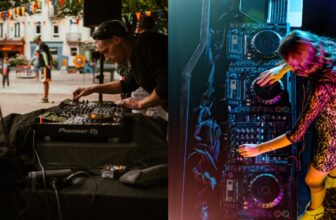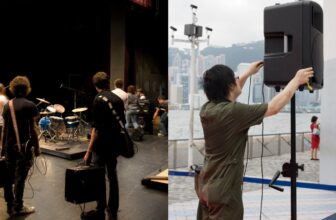How To Become A DJ – The Beginner Guide on Equipment and Gigging
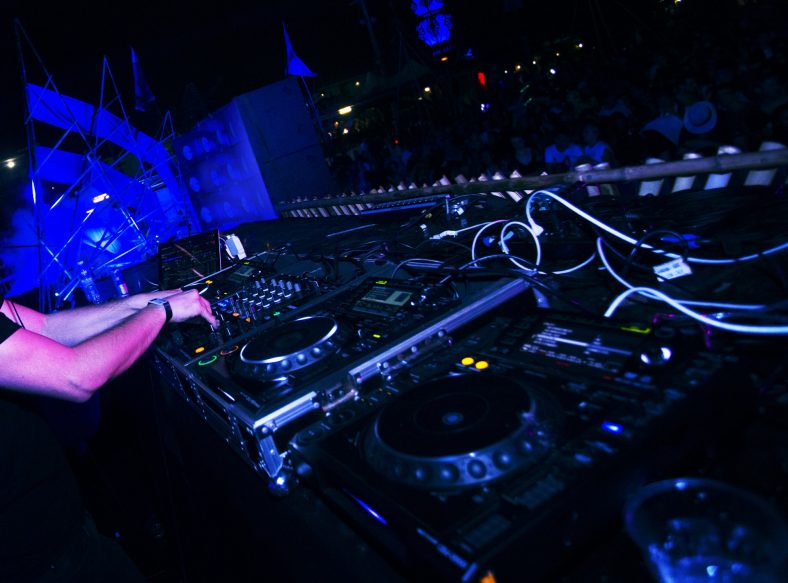
Do you want to become a DJ? The huge array of equipment may seem rather overwhelming for first but once you understand the basics of what you need, it’s a lot more simple to look at the market properly and choose exactly what you need.
Getting your first gig as a DJ can also seem like a difficult task but I an assure you that if you go about it the right way, it’s not as hard as it may seem. Everything gets easier after you have done your first show.
This guide is intended to give you all the information you need to get started.
Choosing Your Equipment – 3 Different Options
There are some things, which are essential to any DJ set up but there are many choices that still need to be made. There are three main ways in which you can mix your tunes and these are all options that you need to look into when you are buying your first set up. These options come in the form on CDJ’s, Vinyl Turntables, and MIDI Controllers.
1. CDJ
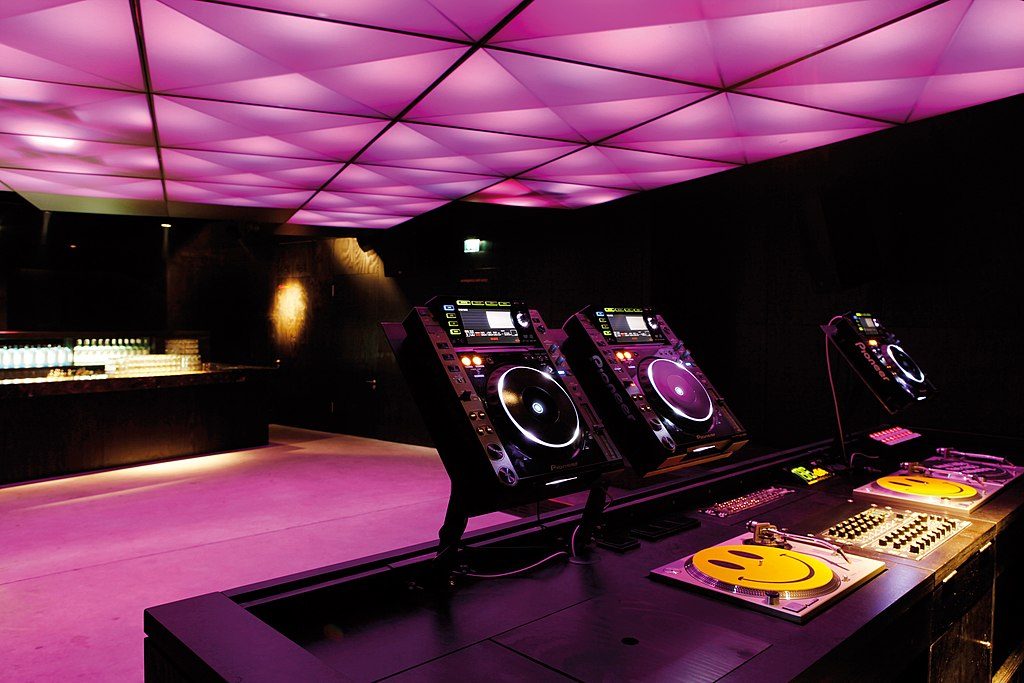
In almost all nightclubs in the modern music scene, you will find that CDJ’s are the industry standard equipment for DJs. As a basic set up, you will need two CDJ turntables, a mixer, and some RCA cables.
CDJ decks, as you may have guessed, are used to play CD’s but many modern systems also support USB and these two formats can usually be used simultaneously. Many people like to organize their music collection into discs and prefer using a physical format when mixing but if saving time and space is your thing, using USBs is a great option.
One major pro of using CDJs is the technology that is built into them. The ability to loop sections of tracks at the touch of a button can be a valuable tool to your creative side and can open up a whole new side of mixing.
Another thing to consider is the BPM reader and display on CDJ units. Being able to quickly match BPMs across your two decks is a great thing to have as a beginner or even as a pro DJ. Matching BPMs by ear takes a lot of skill and is definitely something to aim for, but why not have a little help while you learn?
There are many manufacturers of CDJ units but you will usually find that people will recommend Pioneer to you. Pioneer is without a doubt the most popular and trusted manufacturer of CDJ decks and this is what you will find in almost all professional environments such as clubs or radio stations.
More high-end models of Pioneer CDJs such as the “2000” also come equipped with “Rekordbox” software. This software shows users a visual waveform of the track that is loaded on the deck.
This can be very handy when setting cue points and learning the structure of your tracks for better blends and flow in your mix. Most CDJs can also be connected to a computer and linked with digital mixing software such as Traktor or Serato.
2. Vinyl
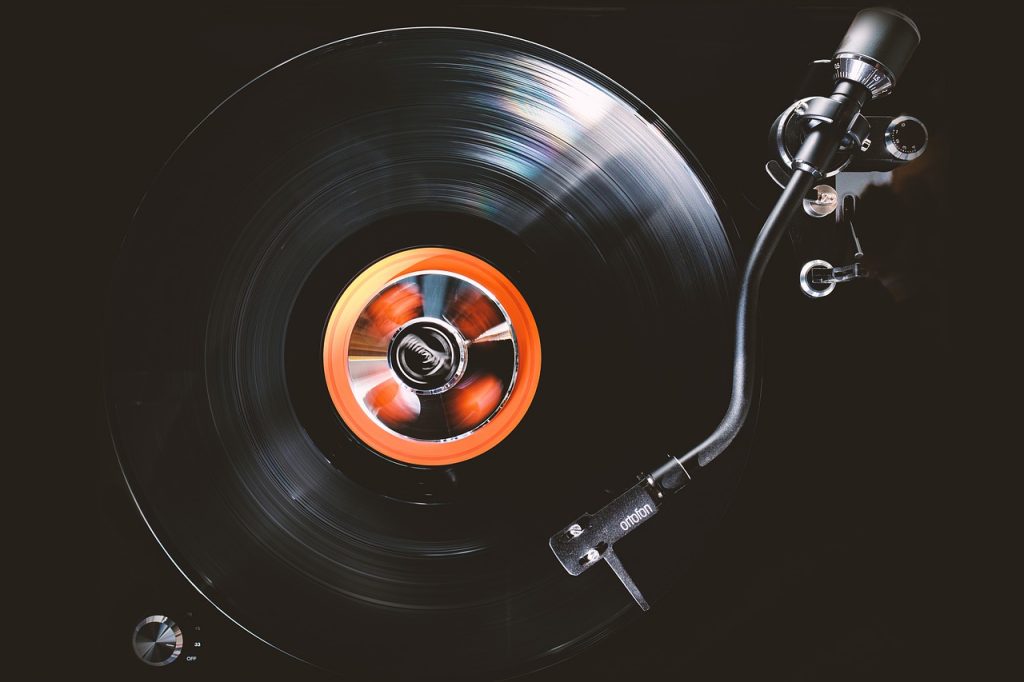
Like the CDJs, you are going to need two turntables, a mixer, and some RCA cables to start your vinyl set up. Mixing on vinyl is the most “old-school and authentic” way of DJing. While new technology may have rendered the use of vinyl obsolete, there is just something about mixing on wax that feels special to a lot of people.
This bare-bones version of mixing is often seen as the best way to learn as a beginner. This is due to the lack of technology “doing your job” for you, meaning that you will have learned the tools of the trade on your own accord and then any added technology would just be a bonus and not a necessity.
One major downfall of mixing with vinyl is the sparse availability of music on the format. Before the introduction of CD and now, digital music, vinyl was by far the most used musical format and almost all music was available on wax. However, while some scenes are putting a foot forward in the revival of vinyl, nowadays you will struggle to find a lot of the music that you want on the format.
There is, however, a new solution to this problem. If you are looking for the feel of using vinyl but want access to all of your newer music, the recent introduction of time-coded vinyl may be the thing for you.
Companys like Traktor and Serato offer users time-coded records that are used to sync your turntables with their digital software. This basically means that you can drag and drop tracks from your digital music library on to vinyl. This method obviously means that you will need a laptop but is the best way to have that vinyl experience in the modern day music industry.
There are many manufacturers of vinyl turntables but again; there is one that stands out. Technics have been the leading manufacturer of turntables for a number of decades and where they can be found, they are the industry standard of turntables in clubs.
3. MIDI / DJ Controller
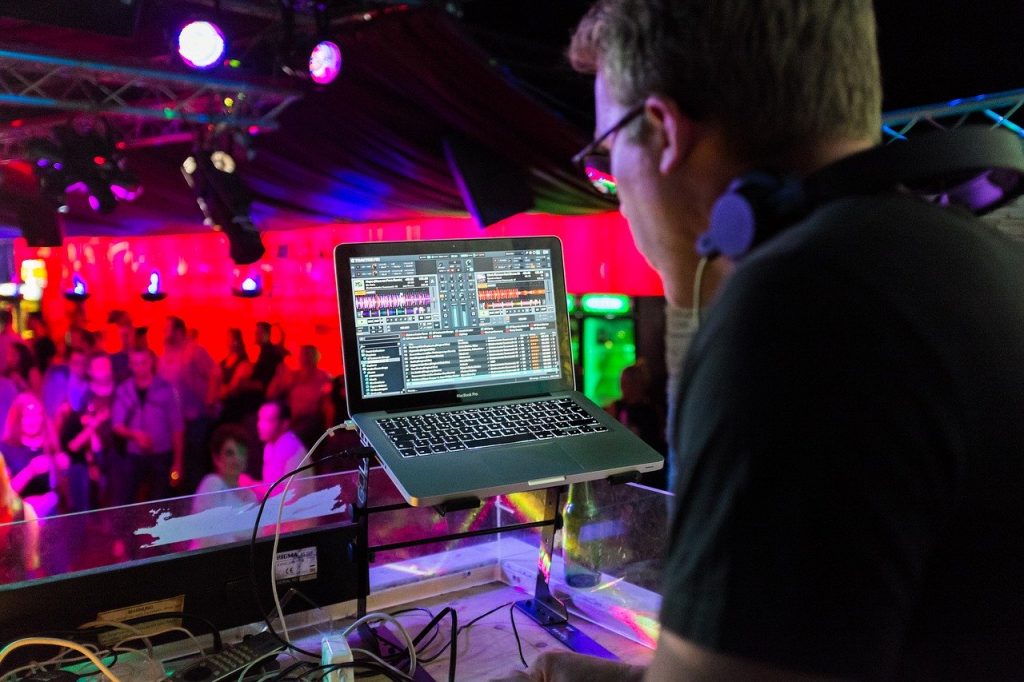
The final route you may choose to take is the newest of the bunch. With recent advances in technology, the art of the DJ has been taken into an entirely digital domain with the introduction of DJ mixing software as mentioned earlier. The piece of equipment that goes hand in hand with this software is the MIDI controller.
These are compact DJ systems with all of the tools you need, delivered in one unit. You will find that DJ controllers will usually contain between two and four decks, as well as a built-in mixer and are very comparable to CDJs.
These units are often USB powered and are designed to be used with digital software and will not work without it. This means that a computer is required for this setup.
You can pick up a controller at the fraction of the cost of a good set of CDJs or vinyl turntables and they come with a lot of extra features. The built-in effects are something that you would usually have to splash out for when buying an external mixer and the controversial “sync button” is something only found on a controller.
The reason this button is so controversial is the fact that it can almost eliminate the need to “DJ”. The art of the DJ is to seamlessly blend two or more tracks so that they either work together or flow from one another.
The key to this art is beat matching. Something that will take time to master but something that comes naturally to an experienced DJ.
This “sync” button instantly snaps the two tracks together, perfectly beat matching them. While this can be a handy tool if you lose track of a mix and want to correct yourself, it can often take away from what it really means to be a DJ and I recommend that people try to stay clear of using this.
Nevertheless, MIDI controllers are an excellent piece of gear to get started as a DJ. With all of the necessary equipment plus a lot of cool extra features at a small price, they are a great tool for a beginner DJ.
Headphones
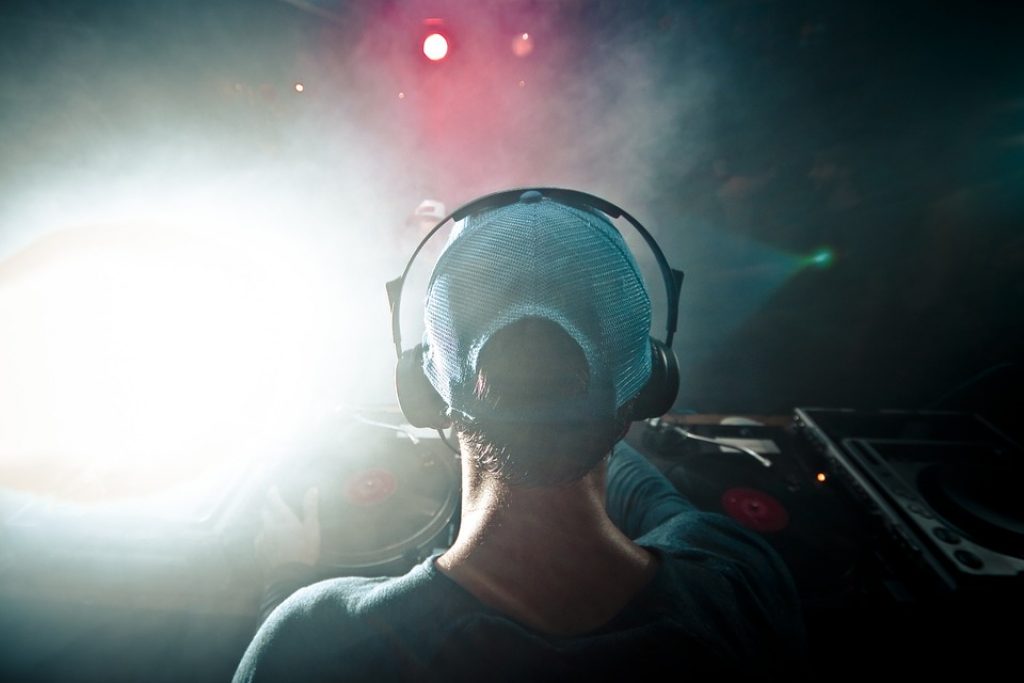
Regardless of your choice of turntables, you are always going to need a set of headphones to DJ. While any old set of headphones would do when mixing at home, you will find that a good set of over-ear DJ headphones will give you a better all-round experience.
Something else to consider is that if you are going to DJ at any clubs or in a louder environment, over-ear headphones are essential as ear pods or similar cheap headphones will not give you the sound isolation you need to mix properly. Some brands that you could look at include Pioneer, Numark, Sennheiser, and Shure.
Speakers
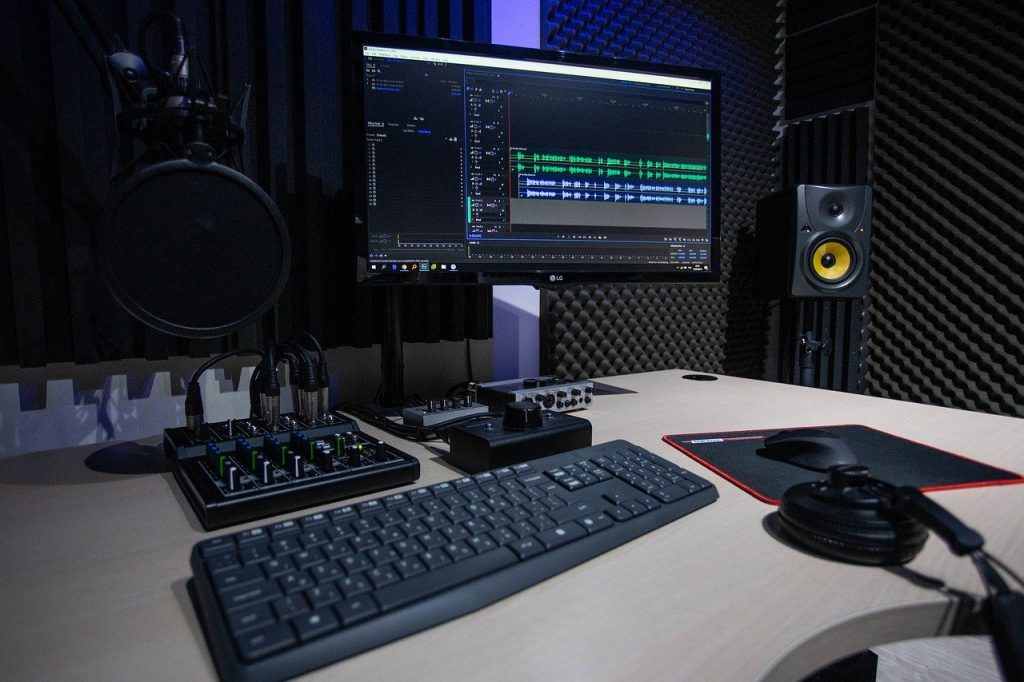
Finally, you’re going to need something to play your music from. As most of you probably guessed, this is where speakers come in. With speakers, I will again admit that any old sound system can be used but for the best experience, I would always recommend that you go with something of better quality.
Studio monitors with a more balanced frequency response are always going to be better than an old pair of hi-fi speakers you have laying around and the differences will be noticeable when you begin to EQ your tracks while mixing.
Get Out and Mix
Whatever set up you choose to go with, the craft of DJing is so much more than what a lot of people perceive it to be and I can assure you this is something you will find as you explore the decks.
I would urge anyone looking to get into DJing to try out all of the equipment mentioned above if they get the chance. There are pros and cons to every piece of equipment and it’s important that you leave your mind open until you find the one that’s right for you.
Getting Your First DJ Gig
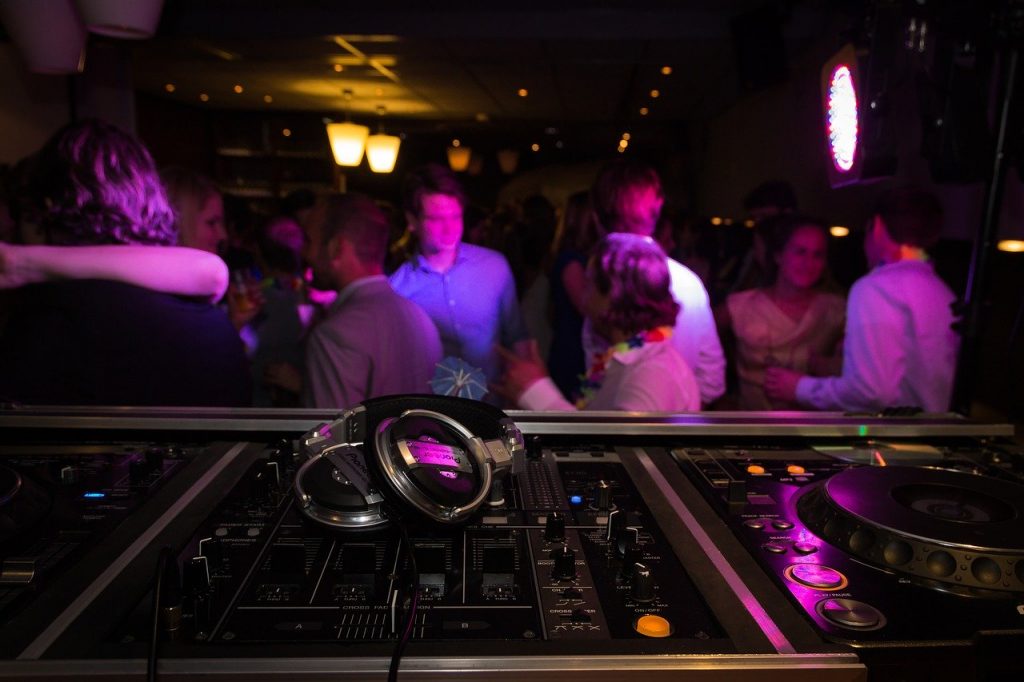
The first thing to understand is that are many different fields of work out there as a DJ. With everything ranging from afternoon shows at weddings and kids parties to 3 am nightclub slots supporting your favorite artists, it’s important to decide which path you want to pursue as I would advise going about them all in slightly different ways.
Many of the practices are the same, however, for the sake of this article, let’s assume that you have chosen the oh so “glamorous” route of the nightclub DJ.
Having an Online Presence
Like with most things nowadays, it’s incredibly important to have an online presence. I cannot stress how beneficial the Internet can be when starting out in any field of work, especially when you’re looking to become self-employed and start your own thing.
Having an online profile is especially important in the music industry as in recent years; the entire industry is leaning further and further away from its old physical formats and is moving more towards the digital age.
The first thing you should do as a DJ is upload some of your work to act as promotion for your services. A good way to start is to record a selection of mixes varying in length that you could upload to free audio hosting sites like Soundcloud or Mixcloud.
These mixes can be used as your portfolio as a DJ and are a very quick and easy way to show people what you can do. As a rule of thumb, an hour-long mix is a way to go but I feel that it would be good to have a few mixes of varying length in your arsenal in case clients are looking for a particular length of mix to reference your work.
Alongside your portfolio of work, it’s always a good idea to open up professional social media accounts on a variety of platforms including Facebook, Twitter, and Instagram. These can be used to share your work but are also a very good tool for broadening your audience and linking with important contacts such as other DJs, club promoters or club owners.
You will find that having active contacts in your field of work can be a vital tool in getting your first gig. Make sure to reach out to people in sight of getting work, but try not to bombard people online as this can come across as annoying and may put people off from hiring you. A simple message along with a link to your portfolio is often enough to hook potential clients.
Getting Your First Gig as a Beginner DJ
Depending on how much you value the money over the music, a good tip, which I recommend when reaching out to people, is to offer to play your first gig for free. This may seem like a step in the wrong direction, but by offering to play for free and then showing people your true worth at your first gig could be the deal breaker in landing more gigs with that club or promoter.
Another thing to keep in mind is that due to the nightlife industry, DJs are often required to work very unsociable hours and people will be looking for someone who is very flexible with their availability. If you are serious about getting gigs, it’s important to make yourself available anytime a show is offered to you. As shows are often late and on weekends, canceling plans or staying up late to get that first show under your belt is an important step to take as a DJ.
One more thing is to gain a good understanding of the clubs you are applying to work in and what kind of events they throw and what the typical style of music is that they host. It’s no good applying for shows at a jazz club if you’re looking to play the latest house music. With so many styles and genres of music around, applying for relevant work is very important, especially in the club scene.
Maintaining Shows
Now you’ve landed that critical first gig, the way you go about this night is imperative to getting the call back for more work. Being punctual and arriving well before you start to play is a good sign to your employer that you are ready and excited for your first night at work.
Turning up 5 minutes before you are due to play and not getting a good feel for the room is not advised, especially on your first show. Know your place. In my opinion, playing the right set for the venue or your time slot is the most important thing you should take into account at any gig you play.
I have seen many upcoming DJs turn up to play the opening warm-up set at an event and before the bulk of the crowd has arrived, they have begun to play their biggest and best tunes to a room of about 20 people. On the flip side, I have seen DJ’s following up fast paced and heavy underground dance music by playing more reserved, “nicer”, slower music
This may not sound like a bad thing to do on paper but the flow of a night is very important and especially when playing alongside other DJs, you need to know what to play and when. Playing to the room is one of the most important things you can do as a DJ and getting this right from the get-go is crucial.
Playing to a live audience is often very nerve-racking and is very different from playing in your bedroom. You could be the best bedroom DJ in the world but nerves can often get the better of you and affect your skill in a live environment.
A lot of people will thrive off the presence of the crowd and use this energy to their advantage but if you are not one of those people, something I recommend is to stay in your zone and almost ignore the crowd. Keeping your head down and focusing all of your attention on your turntables can make it feel like you’re back in your bedroom. Although I personally am very comfortable playing live now, this is something that helped me a lot when starting out.
Good Luck!
Whatever route you choose to follow, playing live as a DJ is one of the most fun and rewarding jobs out there and although it can be very hard to get off the ground, I can assure you that its worth the work. The main thing to remember is that you are probably doing this for your love of music and that is something that you should never let go of.
The people doing it for the love will always stand out from the people doing it for the money. Even a beginner DJ with passion can outshine someone with a lot more experience!
CDJ – Image by: Arnold Jaeger Werner, CC BY 2.0, via Wikimedia Commons


